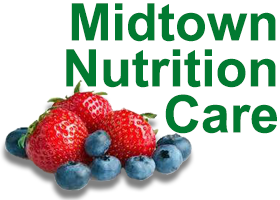 What is Osteoporosis?
What is Osteoporosis?
Osteoporosis is the thinning of bone and loss of bone over time.
This will occur when your body does
not form new bone, or old bone is reabsorbed by the body.
This can result in pain and fractures.
Osteoporosis is more common in women than men.
Everyone builds bone mass up until around the age of 30, and then we start to lose it. This is why it is vital for children and young adults to get enough calcium in their diets so they start out with stronger, denser bones.
For women in menopause bone loss is faster. Other risk factors include being thin, poor diet, some medications, smoking, and excess alcohol and caffeine consumption.
What Are the Symptoms?
One reason Osteoporosis is dangerous is that most often there are no symptoms until you have a bone fracture. For some, back pain may indicate bone loss of vertebrae.
Can Diet Treat Osteoporosis?
The best treatment for Osteoporosis is prevention.
A balanced and healthy diet consisting of Calcium, Vitamin D and some other key nutrients such as Magnesium, Potassium, Vitamin A, Vitamin C, Vitamin K, and protein are crucial.
In addition, weight bearing exercise helps strengthen bones, along with limiting alcohol and caffeine intake and not smoking.
The Importance of Calcium and Vitamin D
Calcium and Vitamin D work together to keep our bones healthy.
Vitamin D is needed for Calcium absorption.
Our bodies make Vitamin D when sunlight reaches our skin, and we can take in Vitamin D in food and supplements.
What Are Calcium Requirements?
- 1300 mg/day for those 9-18 years old
- 1000mg/day for those 19-50 years, and
- 1200 mg/day for those older than 50 years.
Eating 2-3 servings each day of the following foods is a good way to meet calcium needs: dairy products, green vegetables such as spinach and kale, calcium fortified orange juice, soy products (tofu and edamame), almonds and almond butter, and fortified breakfast cereals.
What Are Vitamin D Requirements?
- 600 IU/day for ages 1-70, and
- 800 IU/day for those over 70 years.
Good sources include cheese, butter, fortified milks, seafood (salmon, cod liver oil, sardines, tuna), and fortified cereals.
